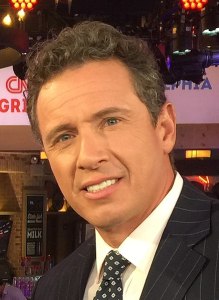
I’ve heard three questions come up since CNN suspended, then fired, Chris Cuomo for his inappropriate involvement in his brother Andrew’s defense against charges that he’d sexually harassed and assaulted women. I don’t know the answers to any of them. But they’re worth framing as we think about the extraordinary events of the past week.
1. Why did it take so long for CNN to act? The original bad actor in all of this was CNN head Jeff Zucker, who allowed Chris to host Andrew on his show when Andrew, as governor of New York, was winning widespread praise for how he had handled the early stages of the COVID pandemic.
It may have struck many people at the time as a harmless diversion during a very dark period. You may recall that Chris himself contracted the virus. But it was unethical, and in the months to come we learned just how unethical. Remember, Andrew ended up being accused not just of groping women but of grossly mismanaging the pandemic as well.
Then the drip, drip, drip started, as we learned that Chris had advised his brother and taken part in meetings as the sexual-misconduct scandal became increasingly serious. Zucker may have worried that suspending or firing one of his stars would have only called attention to his own role, so he let it go.
The revelations that were reported last week, though, weren’t just more but were also different. They showed that Chris had abused his position by, for instance, trying to find out what stories other journalists were working on. This went way beyond anything Zucker could have reasonably foreseen, and thus may have given him the freedom he needed to do what he should have done earlier.
No doubt Zucker’s hand was strengthened further when Chris Cuomo was hit during the past few days with a sexual misconduct allegation of his own — his second.
2. What about Sean Hannity? I’ve heard a number of people ask why Chris Cuomo has to go when Fox News did nothing about Hannity’s close relationship with Donald Trump. To which I can only respond that Fox, notwithstanding good work by a few of its journalists, is not really a news operation. It’s a propaganda outlet whose stock in trade is lies and ginned-up culture-war stories about issues such as race and the evils of vaccinations.
CNN is not what it used to be, and I’m not a fan of its prime-time line-up of opinionated talk shows. But it’s good to see that management still cares enough about the network’s reputation that it’s not going to stand for a host who breaks all journalistic boundaries — even if he didn’t do much journalism on the air. To imagine that Fox News would take similar action is to believe that Fox and CNN are in the same business. They’re not.
And wouldn’t it be great if CNN ultimately decides to replace Cuomo’s 9 p.m. talk show with an actual newscast? I’m not holding my breath.
3. What about Jeffrey Toobin? You may recall that CNN suspended Toobin as its legal analyst after he was caught pleasuring himself during a Zoom meeting. Many observers were surprised when the network took him back eight months later.
I’m not sure what that was about except to note that the incident took place during a New Yorker staff meeting, where Toobin was a writer. The New Yorker fired Toobin and shows no signs of being willing to take him back. CNN may have figured that it would be unfair to banish Toobin permanently for something he did for another employer. Still, it’s hard to watch Toobin without going “ewww.” And I say that as someone who liked his work both at The New Yorker and on CNN.
Finally: What an extraordinary downfall for the House of Cuomo. I revered their father, Mario; long before 2020, though, I was aware of Andrew’s thuggish reputation as governor. Chris struck me as an amiable lightweight. Scandals like this have a human dimension that can’t be overlooked. Andrew and Chris got what they deserved — but I feel bad for their mother, Matilda, who, at 90, is still very much with us.
Become a member of Media Nation for just $5 a month.









